About the year 1630 there arrived here one Mr. Roger Williams;
who being a preacher that had less light than fire in him,
hath by his own sad example preached unto us the danger
of that evil which the apostle mentions in
Rom 10:2 ‘They have a zeal, but not according to knowledge.’”
~Cotton Mather in Magnalia Christi
Roger Williams is oft celebrated as a man who was a pioneer of “religious freedom” and tolerance, a victim of the extremely intolerant, paranoid, Puritanical folk who banished him into the cruel
According to an A Beka history book, “A Puritan named Roger Williams, whom you have already met as a missionary to the Indians, saw religious freedom—or the whole idea about religious freedom—Roger Williams and preachers like Obadiah Holmes have gone down as champions in the cause of liberty for all. Roger Williams’ teaching upset some of the leaders of
John Quincy Adams called him, “Conscientiously contentious.”
Henry Martin Dexter recounts, “When [Williams] lived in Massachusetts he was evidently a hotheaded youth, of determined perseverance, of vast energy, considerable information, intense conviction, a decided taste for novelty, a hearty love of controversy, a habit of hasty speech with absolute carelessness of consequences and a religious horror of all expediency.”
Roger Williams claimed there were “No True Churches!”
In the year 1631, Roger Williams arrived in
He then went to
Roger Williams then went to
Upon another summons to the General Court, Williams declared that all the churches in
He said the New Testament “nullifies” the Old Testament
Roger Williams was the first to seek to put a biblical face on Humanism. He was an Antinomian, believing that the New Testament annulled the Old Testament, getting rid of the sanctions of the Old Testament law. He believed in a “neutral state.” Jesus came to fulfill (i.e. put into force) the law. He said “If you love me, keep my commandments.”
Three years after his banishment for the space of three months he became Baptist. W. Clark Gilpin comments in The Millenarian Piety of Roger Williams on pg. 56: “Having once become a Baptist, Williams did not long remain one. Instead, he concluded that the Roman apostasy had so disrupted the church that no authentic congregations could exist until Christ initiated the millennium by sending new apostles to recreate the church,” thereby aligning himself with the founder of Mormonism, Joseph Smith, and the father of Dispensationalism, John Nelson Darby who both believed that there is no true church. “Hence, only a few months after being re-baptized by Holliman, Williams departed from the Baptist congregation at
The cause of his banishment was his ecclesiastical intolerance coupled with his anarchical views on civil government. In Williams’ view The New Testament completely nullified the Old, leading him to view God’s revealed will in His law, as rubbish.
It was certainly Williams’ intention in founding
The Puritans viewed these positions, in the language of John Quincy Adams, as “altogether revolutionary.”
“Sir, we [in Williams’ colony of Rhode Island] have not known what an excise means; we have almost forgotten what tithes are, yea, or taxes either, to church or commonwealth.” quoted by Craig S. Bulkeley, “Christianity and Religious Freedom,” Christianity and Civilization, No. 1, Spring 1982, pg. 264.
The settlers of
A seductive heretic named Samuel Gorton soon found his way to Providence as well (he had already been booted out of the Bay Colony, Plymouth, and the settlement of Aquidneck, an island in Narragansett Bay.) He began to preach, provoking Williams to write to John Winthrop, “Master Gorton, having foully abused high and low at Aquidneck, is now bewitching and bemadding poor
All this caused Williams to write, “
Implications
To quote
Williams was astounded at what happened in
In
But now we are able to understand why Roger Williams is lionized by the modern historians and viewed as an unblemished hero by most modern Americans. He opposed the sovereign rule of God and sought to establish the autonomy of man. He sought to justify the “neutral state” and thereby nullify the importance of a distinctly Christian State. He was in a real sense the first to put a biblical face on Humanism.

















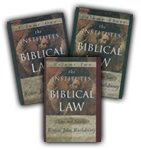






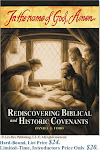



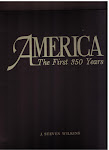
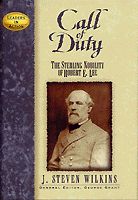









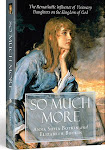




















No comments:
Post a Comment